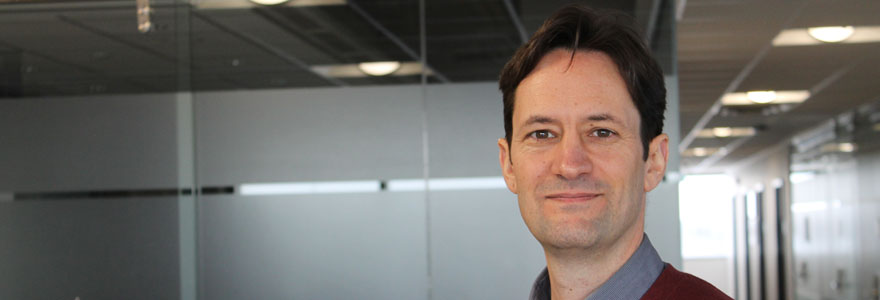News and Updates
Contact
Faculty of Social Science
Social Science Centre
Room 9438
Western University
T. 519-661-2053
F. 519-661-3868
E. social-science@uwo.ca
Understanding the impact of misinformation
January 31, 2019
Photo and Story by Rob Rombouts
Mathieu Turgeon has joined the Department of Political Science, as an Associate Professor.
Turgeon completed his PhD in Political Science at the University of Texas at Austin, and focuses his research on political behaviour, studying how citizens form and develop political opinions and process political information.
His previous research has focused on political behaviour in a variety of countries, including Canada, France, the US and Brazil.
Most of his recent work researched the impact of compulsory voting regulations in Brazil. While Brazilians can vote at the age of 16, they are required, by law, to vote after they are 18. Voting becomes voluntary again when voters turn 70. Most Brazilians know that voting is compulsory but very few understand how the age criterion applies, making it difficult to evaluate the true impact of such regulation.
Turgeon is particularly interested in how behaviours changed based on increased knowledge of the law.
“Turnout is generally pretty low in democracies,” said Turgeon, “and compulsory voting is the best institutional arrangement to make people vote because most people tend to comply with the law.”
Lack of political knowledge will play a large part in Turgeon’s next project as well. Turgeon recently received a grant from Facebook to examine the role of misinformation and political polarization.
Turgeon will focus on WhatsApp, a messaging app that is very popular in Brazil, and which was heavily used in the 2018 Brazilian presidential election to share political information. The app, which is owned by Facebook, has more than 100 million users in Brazil.
“Many people in Brazil are polarized against one party, and not necessarily in favour of another,” said Turgeon. Many voters strongly favour or oppose the Workers’ Party, which was formerly led by Luiz Inácio Lula da Silva, or Lula. This polarization may lead voters to be more willing to share and believe misinformation on social media.
“People have a distorted view of what’s happening,” said Turgeon. “They process information in light of what they already believe (being true or not), and accept or reject information through this lens,” an action known as motivated reasoning.
This study is important as social media becomes a more prominent tool for sharing information.
“In the last few rounds of elections held around the world, there has been a proliferation of information shared on social media,” said Turgeon. “Thirty years ago, newspapers and broadcast and cable news networks were the main sources of information. Today, anyone can be an opinion maker. Social media allows information to be shared at a faster pace, but we have lost quality control of that information.”
“We think fake news may have an impact on public opinion and vote choice, but in reality we don’t know much,” said Turgeon. “The only studies out there suggest the overall impact may actually be small and not too worrisome.”
Turgeon will examine what moderating variables or circumstances may lead to misinformation having a more significant impact.
“Where the fake news being circulated may have a direct impact in your interests, you may give more credence to it,” said Turgeon.
In the recent Brazilian election, misinformation was shared, claiming that people would lose a government subsidy if they did not vote.
Turgeon aims to explore if fake news exert greater effect on people’s behaviours and opinions when it represents a direct threat to their own interests.
“Misinformation has already existed, but we weren’t looking at it. Misinformation now moves so quickly and people may be giving it more weight today than before,” said Turgeon.
Sharing of information has changed how people view their own competency. While previously, many people may not have had much knowledge about political topics or processes. “Now a lot of people think they have information, but a lot of that information is wrong,” said Turgeon. “If someone strongly holds misinformation they think are true, it becomes much harder to update their beliefs.”

